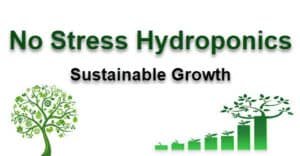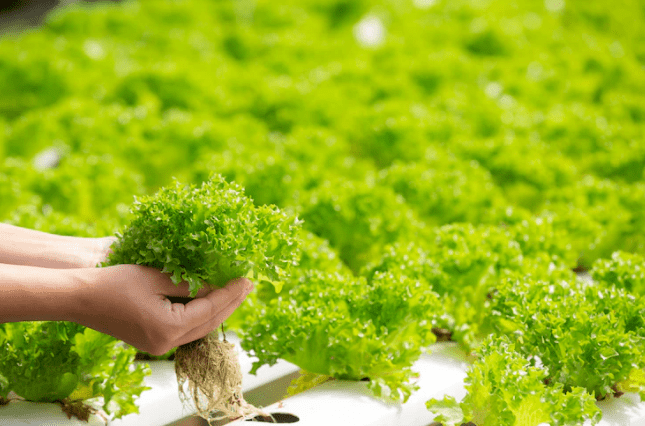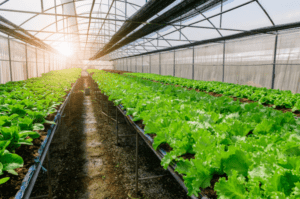The advantages of hydroponic farming. If you’re looking for a sustainable way to increase your yield, you should consider hydroponic farming. Hydroponics is a type of agriculture that doesn’t use soil. Instead, plants are grown in water and nutrient solutions. This type of farming has many advantages over traditional farming methods. In this blog post, we will discuss the advantages of hydroponic farming and how it can benefit your business!
Hydroponic farming is a type of agriculture where crops are grown in a nutrient-rich water solution, without the use of soil. Unlike traditional farming methods, hydroponics can be done indoors, using artificial lighting and temperature control to create the ideal growing environment for plants. In addition, hydroponic systems can be designed to maximize space efficiency, allowing for higher yields in a smaller footprint. Furthermore, because hydroponic systems can be highly controlled and customized, they offer the potential for reduced water and pesticide use, as well as reduced crop loss due to pests or weather.
The Advantages Of Hydroponic Farming
Hydroponic farming has become increasingly popular in recent years, as farmers look for more efficient and sustainable ways to grow crops. Hydroponics is a method of growing plants in a water-based solution, without the use of soil. There are many advantages to hydroponic farming, including the following:
1. Increased Efficiency: Hydroponic systems can be designed to maximize efficiency, using less water and fewer resources than traditional farming methods.
2. More Control: Because hydroponic farmers have more control over the growing environment, they can easily adjust factors like temperature, humidity, and nutrients to optimize plant growth.
3. Less Space: Hydroponic farms can be set up in small spaces, making them ideal for urban areas.
4. Less Waste: Hydroponic farming generates very little waste, as unused water and nutrients can be recycled back into the system.
5. Improved Sustainability: Hydroponic systems are highly scalable and can be powered using renewable energy sources, making them more sustainable than traditional farms.
Increased Efficiency
One of the main advantages of hydroponic farming is increased efficiency. When crops are grown in soil, a lot of water and nutrients are lost to evaporation and leaching. With hydroponics, water and nutrients are delivered directly to the roots, so there is very little wastage. This means that crops can be grown with less water and fewer nutrients, saving time and money. In addition, hydroponics can be used to control the environment in which plants are grown. By controlling temperature, humidity, and light levels, it is possible to grow crops that would not normally be able to survive in the wild. As a result, hydroponic farming can be used to produce a wider variety of crops than traditional methods.
More Control
One of the main advantages of hydroponic farming is that it allows growers to have more control over the growing environment. By using artificial lighting and carefully regulating temperature and humidity, hydroponic farmers can produce higher yields in a shorter amount of time. They can also control pests and diseases, which can be difficult to do in traditional farming. In addition, hydroponic systems can be set up in small spaces, making them ideal for urban areas. As a result, hydroponic farming is a more efficient and sustainable way of producing food.
Less Space
Hydroponic farming requires less space than traditional farming methods. This is because hydroponic systems can be stacked vertically, allowing farmers to grow more crops in a smaller area. Additionally, hydroponic farms can be located indoors, which further reduces the amount of space required. This is beneficial for farmers who live in urban areas or who have limited land resources. Moreover, by using less space, hydroponic farms can have a smaller environmental footprint than traditional farms. In addition to requiring less space, hydroponic farms also use less water than traditional farms. This is because hydroponic systems recycle and reuse water, rather than losing it to evaporation or runoff. As a result, hydroponic farms can conserve precious water resources, even in regions with limited water availability. Given the many advantages of hydroponic farming, it is no wonder that this method of agriculture is increasingly being adopted by farmers around the world.
Less Waste
One of the main advantages of hydroponic farming is that it produces less waste than traditional farming methods. In traditional farming, a lot of water is lost through evaporation and runoff, and soil can erode, carrying nutrients with it. With hydroponic farming, water is recirculated so there is very little evaporation, and unused nutrients can be easily reused. This means that less water and fewer resources are required to produce the same amount of food. In addition, because hydroponic farms are often located indoors, they are not subject to the vagaries of the weather. This results in a more consistent supply of fresh fruits and vegetables year-round. Finally, because hydroponic farms can be carefully controlled, they can be used to grow crops that would not thrive in outdoor conditions. For example, by controlling the temperature and humidity levels, it is possible to grow tropical fruits and vegetables in a temperate climate. Consequently, hydroponic farms offer several significant advantages over traditional farming methods.
Improved Sustainability
Improved sustainability is one of the many advantages of hydroponic farming. In traditional soil-based farming, a great deal of water and energy is required to produce crops. Irrigation systems rely on pumps to move water from rivers or aquifers to fields, and this process can be quite energy-intensive. Furthermore, evaporation and runoff can lead to significant water losses. Hydroponic systems, on the other hand, are highly efficient in their use of water and energy. Since plants are grown in a closed system, there is very little evaporation or runoff. Moreover, hydroponic farmers can recycle water from one crop cycle to the next, further reducing water consumption. In addition, hydroponic systems can be powered by renewable energy sources such as solar or wind power, making them even more sustainable. Consequently, improved sustainability is one of the key advantages of hydroponic farming.


